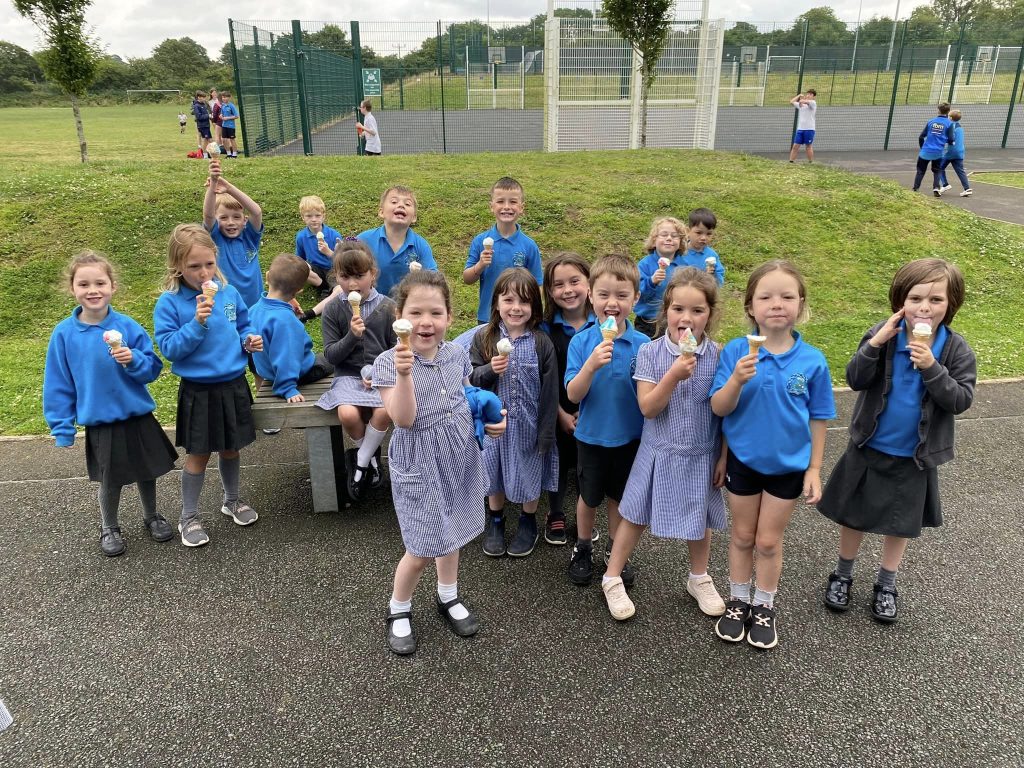Education
Calls for balanced use of technology


Is this the future?: Technology concerns
A LEADING child psychologist has warned of the dangers of an over use of technology by the UK’s children. Linda Blair, speaking at the Cheltenham Science Festival, has suggested parents refrain from allowing children to use electronic devices before they set off for school as she believes it could harm their concentration levels in school. she has also called on schools to limit the amount of homework that required computer use.
She said: “It makes me mad because a lot of schools are doing screen homework. It’s so stupid – I wish they wouldn’t do that.”
However, a Pembrokeshire County Council spokesperson has hit back, stating: “It is part of our role as educators to provide pupils with the experience of using a wide range of technologies to support learning in order to equip them with the skills required in the modern working environment. Ideally, there should be a balanced approach to the use of technology in the home just as there is in school.”
Ms Blair did however accept that limiting screen use ‘was not a popular move’, but believes it can ‘transform things’ for young people. She went on to suggest a partial move away from the use of technology, saying: “I encourage people to try it for a couple of days,” and continued by suggesting families ‘establish one point in the day where the family focuses on each other. Saying: “That used to be called dinner. All screens are off and you actually talk to each other. They will moan but 10 years from now they will remember it and thank you. You have to set limits. Kids have got to know how to manage their screens and be in control.”
The author of the book, ‘The Key to Calm’, also encouraged parents to set an example by limiting their ‘screen time’ and in her book states that ‘computers and other screens emit a blue light that has been shown to reduce levels of melatonin – a chemical produced by the body that aids restful sleep’.
Two leading teaching unions also wanted to have their say on the issue.
Owen Hathway, NUT Wales Policy Officer, said: “It will be interesting to review the research into this issue. It is of course important that children do come to school enthused and ready to work. We know that pupils who are up late watching TV or playing with computers or games stations can lack energy and concentration in class. It could well be that there is a similar impact for early morning use. At the same time we are in a digital age and smartphones and tablets are part, not just of modern life, but of the learning experience. I think what is important is that any use of these technologies around school are geared towards supplementing education. Using these devices for educational purposes can be highly effective and should be encouraged in that regard, but naturally only where it benefits rather than hinders the child’s ability to play an active role in the classroom.”
Dr Philip DIxon, Director of ATL Cymru, also went on to say: “The advent of computers and the internet has obviously provided us with great tools unknown to previous generations. Our children are growing up in a technological age and will need to be digitally literate to survive and prosper in the twenty first century. However, as with all advances we need to tread carefully. Some research suggests that too much computer work can be bad for us all let alone young children. So we need a healthy mix of learning and enjoyment from a variety of sources.”
Plaid Cymru Shadow Education and Skills Minister Mid and West AM Simon Thomas said: “Plaid Cymru’s election campaign in 2007 had a policy of free laptop computers for pupils. In the One Wales government we delivered on that pledge to those pupils most in need. This policy provided a level playing field for those who did not have access to a computer at home. Smart devices are part of the world of work and our everyday lives. As a parent and an elected representative I think we should embrace technology and not try and ban children from using them. There of course has to be a balanced approach between the use of technology and traditional methods of learning. There is evidence that smart screens can stimulate in an inappropriate way but this is best handled by the class teacher. Pupils often outstrip teachers in their skilful use of modern computing but we also need to teach coding to create, as well as use, programmes. We need young people equipped with the skills that can make the Welsh workforce a global competitor and just as importantly the skills to access knowledge throughout their lives.”
In the US research has also highlighted problems with pupils and mobile phone use, an increasing issue here in Wales. Academics at the Ohio University, Illinois State University and Nebraska University found out that students sending and receiving messages while studying actually scored lower test grades. 145 undergraduates took part in the research.
In the report it stated: “It is a common occurrence to observe students who are physically present, yet mentally preoccupied by non-course-related material on their mobile devices. As mobile devices have deeply saturated the college student population, this problem will likely continue to pose a significant obstacle.”
Some lecturers and universities are in favour of incorporating this technology into lessons, others want to see an outright ban on their use. The research went on to state: “Perhaps one of the biggest challenges instructors face in the 21st Century college classroom is the struggle of retaining student interest and engagement while students remain connected to the outside world through their mobile devices.”
A study published last month by the London School of Economics utilised schools in four English cities and concluded that test scores increased by more than 6% in those schools which banned the use of mobile phones. Researchers also concluded that it was the low-achieving pupils who were most likely to be distracted by these devices.
Education
Research reveals nearly half of children in Wales had additional learning needs

A NEW study has highlighted the prevalence of additional learning needs, formerly known as special educational needs, among under 16-year-olds in Wales. The findings come with a policy briefing, calling for a robust review of processes used to recognise such issues and more inclusive learning support for all children nationally.
The research and policy reports, led by the University of Bristol and funded by the Nuffield Foundation, found nearly half (47.9%) of children born in 2002/2003 were identified with some form of additional learning needs (ALN) at some point during their schooling. This was shown to have the biggest impact on academic achievement across all Key Stages of their education.
Lead author Dr Cathryn Knight, Senior Lecturer in Psychology of Education at the University of Bristol, said: “Our findings clearly challenge the notion that learning needs only affect a minority of learners. Key common factors increasing the likelihood of being identified with SEN also emerged, emphasising the importance of recognising the child’s environment and understanding their individual situation to effectively support their learning needs.”
Researchers from the University’s School of Education and Swansea University analysed data from more than 200,000 children in Wales, born between 2002 and 2009, to understand the levels of SEN and its impact on academic achievement.
Findings revealed that the earlier the additional needs emerged and were recognised, and the longer their education was spent with these known needs, the less likely they were to meet nationally expected levels of attainment.
Dr Knight said: “Our research suggests the former SEN system in Wales was unable to effectively support students to mitigate the negative impact of SEN on their grades. This underscores the substantial toll of SEN on academic achievement. To improve academic attainment levels in Wales, it is crucial to prioritise effective support for this very large group of learners.”
Learners having free school meals (FSM) throughout their education were found to be four times more likely to be identified with SEN compared to those not in receipt of free meals. Those born in the most deprived neighbourhoods were shown to be even more likely (4.6 times) to be identified with SEN.
The study also showed boys were much (5.5 times) more likely to be identified with SEN than girls. Children with higher school attendance had a lower likelihood of SEN identification and learners born in the summer, so younger in their year group, were three times more likely to be identified with SEN than those born in the autumn.
Dr Knight said: “This raises concerns about the effectiveness of SEN identification processes, particularly given the unexpectedly high number of learners identified with SEN. It suggests a potential issue of over- or under-identification of certain children.”
The main policy recommendations in the report were to prioritise inclusive educational initiatives that recognise and support all children. The substantial impact of SEN on children’s grades, raises questions about how children with learning needs can be supported to show progression within the education system. Therefore, consideration of more inclusive assessment practices is recommended. The report also calls for current methods used to identify learning need to be rigorously reviewed, with a new focus on ensuring accuracy, fairness, and inclusivity.
The research mirrors similar national findings. Evidence from the Education Policy Institute in England also found a high level (40.7%) of SEND (Special Educational Needs and Disability) identification. Other research, published in the British Educational Research Journal, has also shown that children with SEND in England are also far less likely to meet expected learning standards than their peers at Key Stage 1.
Dr Knight said: “We also need longer-term evidence within Wales and across the UK in order to develop a fuller understanding of the challenges. This includes possible systematic issues with how learning needs are recognised and their subsequent impact on attainment.”
Education
School children focus on Pembrokeshire’s renewable energy future

FENTON COMMUNITY PRIMARY SCHOOL welcomed renewable energy experts to help Year 5 and 6 learners broaden their knowledge as part of their Marine Energy Project.
During the summer term Blue Gem Wind, Pembrokeshire Coastal Forum and the Darwin Experience have discussed Pembrokeshire’s importance in the renewable energy sector and low carbon technologies with the school children.
Learners designed and built models of different anchorage structures for offshore turbines, and learnt from the Darwin Centre about the different marine organisms that might colonise them.

They pitched their design ideas, with a combination of class designs being built and deployed at the Marine Energy Test Area (META) in Milford Haven by Pembrokeshire Coastal Forum.
The visits have inspired many new ideas and possibilities for the future of the learners.
Summer Marshall (Year 6) explained: “It was a great opportunity for our designs to be actually made into something for a real-life purpose.”
“If it wasn’t for this project I wouldn’t have learned about the importance of marine habitats and how these are linked to our future,” added TJ Hill (Year 6)
“It is really important because a lot of future jobs will be based around renewable energy and technology,” said Milly Badger (Year 6).
“From having Blue Gem Wind, META and Darwin visit, it’s made me think about a job in renewable energy,” added Oscar Davies (Year 6).
Acting Executive Headteacher Gareth Thomas said: “The project has enabled development of careers and work-related experiences with our learners. Direct industry engagement has been crucial to motivate our learners to think about the future jobs in Pembrokeshire and the life they may lead here.”
Year 5 and 6 teachers Leah Hackett, Matthew Vaughan and Mike Lowde agreed that many of their pupils could work in the renewable industry in future.
“Hopefully, after this, we have a group of enthusiastic pupils who already have a keen understanding of the benefits of renewable energy and the place it holds in Pembrokeshire and the wider world,” they added.
Education
Pupils delight in ice cream treat from Pembrokeshire’s number one van

CHILDREN at Ysgol Caer Elen in Haverfordwest were treated to a delightful surprise on Tuesday when they were all given the opportunity to enjoy ice cream, generously provided by Mr McGeown and his family.
The delicious ice cream, a highlight of the school’s summer celebrations, was not just a treat for the pupils but also a testament to the McGeown family’s commitment to supporting educational projects. The funds raised by the family have been donated to the school, aimed at enhancing various school initiatives.
The joyous event was made even more special by the efforts of volunteers Martin, Sian, Amirah, Jack, and Alyannah, who served the ice cream. Their contribution ensured that the occasion was filled with a wonderful and happy atmosphere.












The school extends its heartfelt thanks to Mr McGeown and his family for their generosity and support. Their donation will play a crucial role in the continued development and success of school projects, benefiting all pupils.
“We are incredibly grateful to Mr McGeown and his family for their kindness and support,” said Mr Dafydd Hughes, the headteacher of Ysgol Caer Elen. “The ice cream treat brought immense joy to the children and added to the spirit of our summer celebrations.”
Ysgol Caer Elen, a pioneering Welsh-medium school catering to students from ages 3 to 16, prides itself on its vibrant community and commitment to high-quality education in Pembrokeshire. The school’s ethos centres on creating a caring and inclusive environment where every pupil is encouraged to achieve their best and develop their skills for the 21st century
The community looks forward to seeing the positive impact of the McGeown family’s contribution, as the school continues to thrive with the support of dedicated and caring individuals.
-

 Education5 days ago
Education5 days agoMilford Tesco worker achieves Oxford dream and lands top legal job
-

 Crime4 days ago
Crime4 days agoHaverfordwest man admits having nearly 1000 child and animal images
-

 Crime4 days ago
Crime4 days agoYouth set to appear in court over serious sexual offences
-

 Crime4 days ago
Crime4 days agoPolice investigating after man injured during altercation in cemetery
-

 Education4 days ago
Education4 days agoPupils delight in ice cream treat from Pembrokeshire’s number one van
-

 Crime4 days ago
Crime4 days agoTown centre ‘stinking of skunk’ as police strip cannabis farm
-

 Crime3 days ago
Crime3 days agoFag-butt police court summonses spark debate in Pembrokeshire
-

 News6 days ago
News6 days agoProposal to give firefighters a council tax discount to go to Cabinet



























